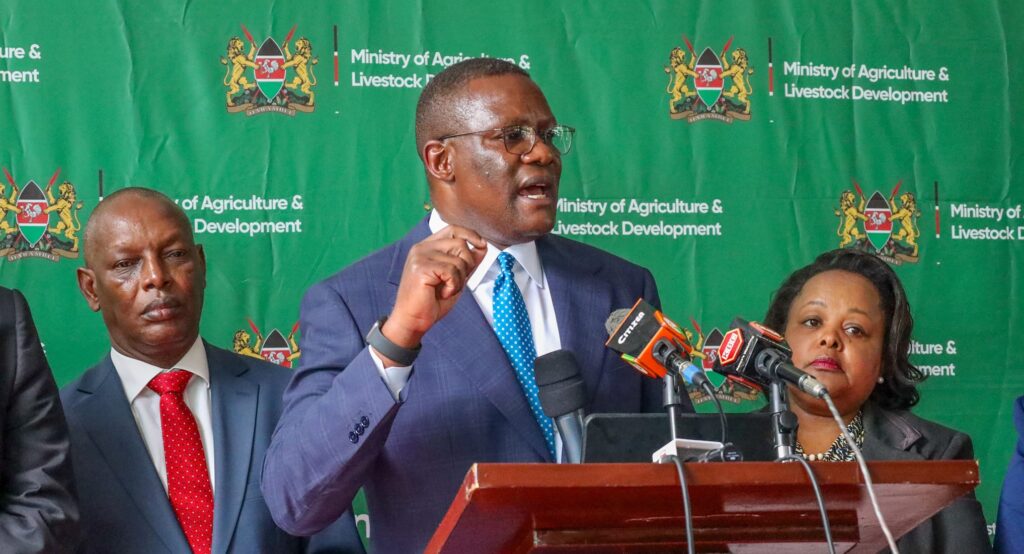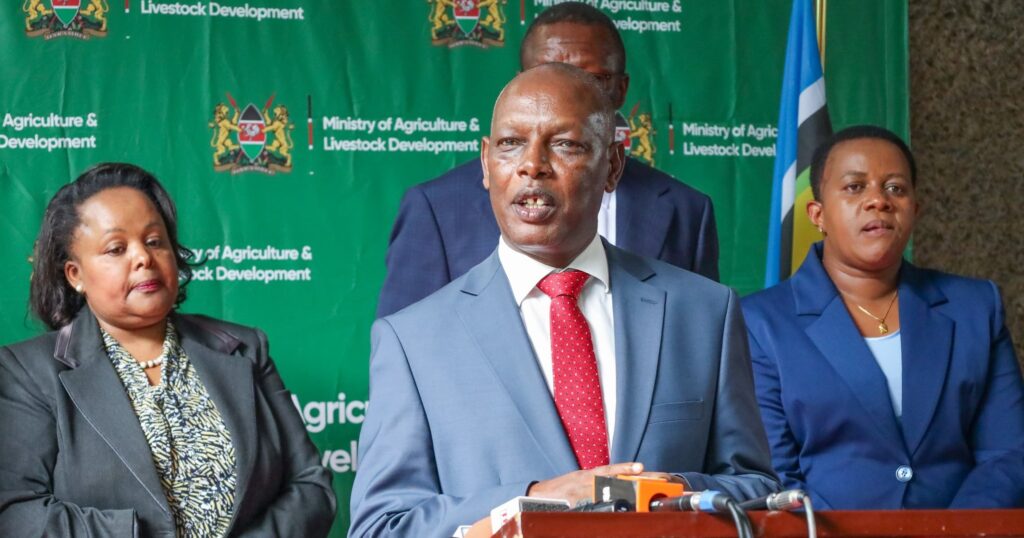Performance
The government has embarked on an extensive programme to validate performance contracts for the financial year 2024/25 which is geared towards enhancing service delivery and fast-tracking the achievement of its development agenda.
Deputy Chief of Staff, Performance and Delivery Management Eliud Owalo said that they are conducting the evaluation to ascertain the level to which Ministries, Departments and Agencies (MDA’s) have aligned their strategic plans for the period 2023/24 to 2027/28 to the overall policy framework in government which is anchored on the Bottom-Up Economic Transformation Agenda (BETA).
He explained that all government institutions have aligned their policy frameworks to the Fourth Medium Term Plan (MTP4 2023-2027) of the Vision 2030 and the BETA plan as well as other policy frameworks like the African Union (AU) Agenda 2063 and the Sustainable Development Goals (SDG’s).
“To operationalize these plans, the line ministries have developed annual work plans where the annual performance contracts are anchored on, the rationale of performance contracting framework is that institutions and individuals within them have to be held accountable by way of results,” said Owalo.
He highlighted that at the beginning of each financial year all MDA’s are expected to sign performance contracts committing themselves beforehand to certain minimum levels of performance both quantitative and qualitative. According to Owalo, some of the parameters they are interrogating is compliance to the digitalization agenda in government and onboarding of services onto the e-Citizen platform which is aimed at enhancing efficiency and effectiveness through automation.
“We are also assessing the level of absorption of donor funding where we want to authenticate the value of each of these funds and ascertain the efficacy of the absorption of the same,” said Owalo. He added that they are also assessing the level of implementation of Cabinet decisions where there have been delays in implementation of Cabinet memos and translating them into enabling policy frameworks or passing them into law through an act of parliament.
“The ministry of agriculture has achieved key milestones in the past two years, key among them being the implementation of a comprehensive fertilizer subsidy program, significantly lowering the cost of fertilizers for smallholder farmers,” said Owalo.
Owalo explained that there has been an increase in distribution of fertilizer bags by 7.2 million from 1.4 million in 2022 to 8.6 million by 2024 representing a 514% increase. The cost of fertilizer per bag has reduced from Sh7, 500 in 2022 to Sh2, 500 in 2024 representing a 66% cost reduction for farmers with this initiative leading to increased crop yields and enhanced food security.

Deputy Chief of Staff, Performance and Delivery Management, Eliud Owalo speaking at Kilimo house on Monday September 23, 2024 during the commencement of the validation of performance contracts for the financial year 2024/25. Photo by Joseph Ng’ang’a.
He highlighted that the ministry has also been able to reduce the cost of a 2kg packet of Unga from Sh250 to Sh120. Owalo said that in the sugar sector the government has been able to clear all the farmers arrears amounting to Sh1.7 billion and the government is moving to the next level of sorting out money owed to the employees of the sugar factories.
“Due to these interventions, the country’s sugar production has increased significantly where we are producing 83, 000 metric tons per month as compared to a local demand of 75, 000 tons per month which means we have a domestic surplus compared to yester years where the country was depending on imports,” said Owalo.
According to Owalo, the ministry of agriculture going forward has committed to enhance the fertilizer subsidy programme by 50% and also increase the number of farmers on the E-voucher programme by 50%, by 30th June 2025. “With a view to diversifying agriculture production, the ministry will be distributing coffee seedlings and other assorted fruit trees among other initiatives,” said Owalo.
He added that in the dairy value chain development, the ministry has committed to ensure that they will install bulk milk coolers with a capacity of 2,000 liters in 36 counties. “The ministry also commits that they will install 10 bulk milk coolers with a capacity of 10,000 liter in Kiambu county which will have three coolers, Meru two, Nyandarua two, Nyeri one, Nakuru one and Uasin Gishu one cooler,” said Owalo.
He explained that any ministry that performs exemplary stands a chance of enhancement in budgetary allocation while those that will not perform well will face sanctions which include but not limited to reduction in budgetary allocation.
Secretary to the Cabinet Mercy Wanjau said that what is not measured is not done thus the reason why they will be conducting the validation exercise for the next three weeks where they will be evaluating the progress made by the 5th administration.
“Our areas of focus have been on the status of implementation of directives from the second National Executive retreat that was conducted in February 2024 and the ministry of agriculture has posted a satisfactory performance in this regard,” said Wanjau. She explained that the ministry of agriculture has boarded a total of 1,411 services on the e-Citizen platform out of the 1,824 total identified services which gives them a compliance rate of 64%.
Agriculture and Livestock Development Cabinet Secretary (CS) Dr. Andrew Karanja said that the ministry has prioritized several value chains in the implementation of BETA which include Tea, Edible oils, Rice, Textile and apparel (cotton), Coffee, Sugar, Wheat, Pyrethrum and Avocado; Dairy value chain Development, Leather development, Livestock Breeds, Indigenous poultry, Mutton, Chevon Fish, Pork and Honey.
“We will be working to strengthen our intergovernmental relationships with the county governments because agriculture is a devolved function and this will enable us to deliver our mandate to the general public,” said Dr. Karanja.
